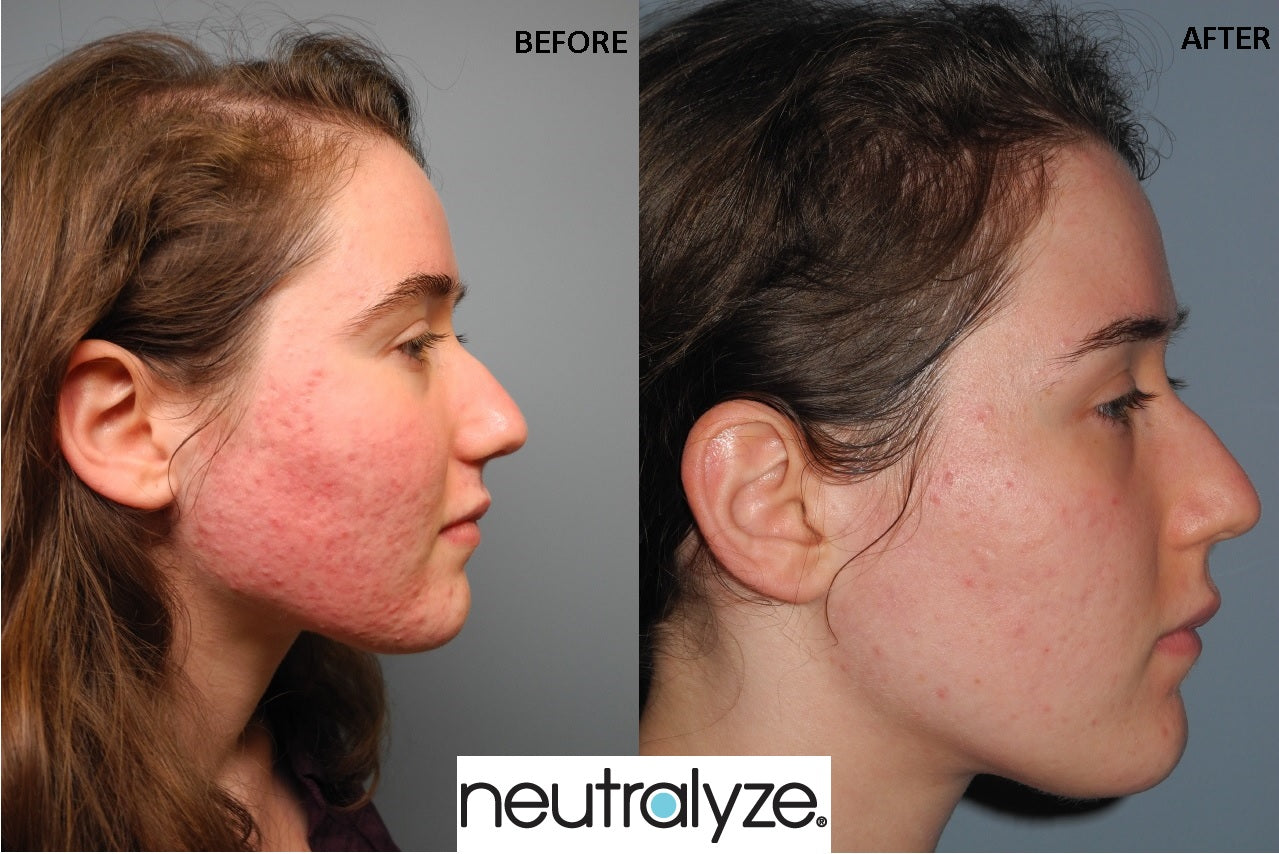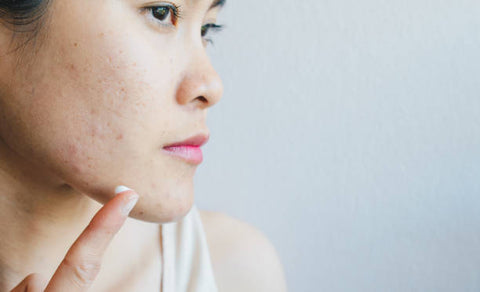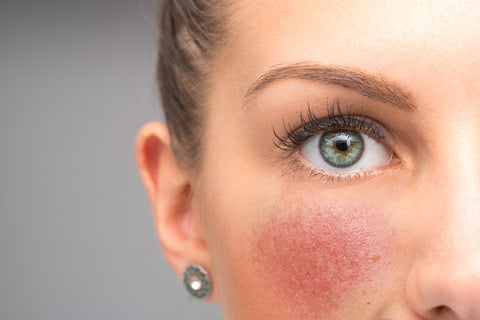Dealing with Flare-Ups

Acne can be a frustrating problem, even for many adults. It is one of the most common skin disorders, affecting approximately 50 million people in the US alone.
It can lead to physical after-effects, such as permanent scarring, and may even cause depression, anxiety, and poor self-image among individuals who chronically struggle with the problem.
While flare-ups can be troubling, there are ways to manage and combat them. This article aims to help you gain a better understanding of flare-ups, their causes, and how they can be dealt with.
What Causes Flare-Ups?
It is possible for adults to get acne, even when they didn’t have it during their adolescence. This skin problem is commonly caused by excess oil, bacteria, and hormonal changes. Genetics can also make you more prone to it.
Simple bad habits, like forgetting to wash your face after a long, hot-weathered day, may trigger flare-ups, but there are actually several things that exacerbate acne.
Stress
Stress is one of the most common causes of flare-ups. When you’re stressed, your body produces androgens, a group of hormones that affect males’ physical and reproductive development. These hormones stimulate your skin’s oil glands and hair follicles, and this can lead to acne.
Beauty products
Some hair and skin care products can also trigger acne. There are certain hair styling products that can add oil to your forehead and trap bacteria. Some skin and beauty products contain ingredients that may clog pores and eventually cause inflammation.
Medications
There are drugs, particularly those that contain corticosteroids, anabolic steroids, and testosterone, that can cause acne as a side effect.
Facial hair removal
Some facial hair removal products can also be pore-clogging. Note, however, that not all bumps on your skin after hair removal are acne. Some are rashes brought about by irritation.
Diet
What you eat may trigger flare-ups as well. Some types of food, like processed food or food with refined carbs, can trigger excessive oil production and inflammation that cause or exacerbate acne. Skim milk, soda, white bread, and white rice, for instance, have components that may affect your hormones and your oil glands.
Dirty devices
Your cellphone is constantly exposed to dirt and can carry acne-causing bacteria. These bacteria can transfer to your face whenever you put your phone against your ear or when you touch your face after using your device. Even your earphones, on which sweat, dirt, and grime can accumulate, may trigger irritation.
Pollution
Pollution can worsen acne. A study conducted by Krutman et.al highlights the link between skin problems and the level of exposure to pollutants. Outdoor pollution, such as particulate matter, gases (ozone, nitrogen dioxide), and other pollutants, contribute to oxidative stress through reactive oxygen species (ROS) and inflammation. This reaction can potentially aggravate acne.
How to Prevent Flare-Ups
Flare-ups can be treated and even prevented. Here are some of the best practices you can integrate into your daily life to manage acne or to keep it at bay.
Skincare
- Avoid touching your face.
Unless you’ve washed your hands well, avoid hand-to-face contact to minimize the possibility of transferring bacteria from your fingers to your face.
- Be kind to your skin.
Use your fingertips instead of washcloths and always apply face care products gently. Avoid abrasive cleaners. Use skincare products that are mild.
Daily Habits
- Learn to manage stress.
Because stress can contribute to flare-ups, finding ways to manage your stressors. Different self-care activities such as yoga, meditation, writing, and long showers can help you relax and, in turn, mitigate stress-induced acne flare-ups.
- Include more anti-acne food in your diet.
Eat more low-glycemic, high-protein food like kale, legumes, lemons, and berries. Aside from combatting acne, these are packed with antioxidants and nutrients that are great for skin health. Lemons, in particular, are useful in lightening acne scars.
Dealing with Acne Flare-Ups
Flare-ups can be hard to avoid, but they can be treated. Aside from introducing preventive habits into your daily life, here are other ways to combat flare-ups:
Find the right skincare products.
Make sure that you read product labels carefully. Look for products that are non-comedogenic, non-acnegenic, and oil-free. If you’re in the middle of a flare-up, use products that are acne-friendly to facilitate faster skin clearing.
Products that contain salicylic acid, mandelic acid, or nitric oxide are often effective in combating acne.
- Salicylic acid acts as an anti-inflammatory agent and is also widely used as a topical antibacterial agent. It is a key component in skin care products for acne, psoriasis, and warts treatment.
- Mandelic acid is an alpha hydroxyl acid (AHA) that is gentler on the skin compared to other AHAs. It may be able to help alleviate acne, hyperpigmentation, and other skin issues. Products with mandelic acid can help regulate your skin’s sebum production and reduce skin inflammation.
- Nitric oxide has been found to combat acne-causing bacteria. This component also helps stave off inflammation, which is one of the leading causes of acne.
Develop your self-esteem.
While it’s understandable how flare-ups can affect your self-esteem, keep in mind that physical appearance and skin conditions should not define who you are.
To take your mind off flare-ups and to help strengthen your confidence, immerse yourself in activities that you love or that hone your talents or skills. These nurturing endeavors can help remind you of your real worth.
Improve your lifestyle.
Flare-ups can be prevented by making lifestyle changes. Apart from eating better, also try getting sufficient sleep daily and exercising regularly.
Not being able to sleep well or long enough may trigger your body to release stress hormones. Meanwhile, exercise can help improve your blood circulation, which can help heal acne faster and is known to lower stress levels. Sweating is also great for your skin, as it opens your pores and allows your skin to naturally remove excess oil and dirt.
Talk to a dermatologist.
It’s best to consult with a board-certified dermatologist for successful acne treatment or management, especially if you have severe acne. Dermatologists can treat your flare-ups and help you prevent acne scars and future breakouts.
Flare-ups can be challenging and limiting, but they shouldn’t inhibit you from enjoying your life. Addressing acne early and adopting good preventive habits can help you avoid them. With proper diagnosis and treatment, your acne can be successfully managed.


